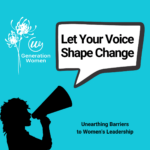Listening effectively is one of the most important skills we can have in our lives. It really is the key to better relationships in all areas of your life, from personal to your career. Think about those that you already have a great relationship with. I can guarantee that these people listen to you intently and you do likewise to them. These relationships have developed over time but it is not always easy to have the same understanding with those you don’t know as well, particularly in the workplace. So how do you become a better listener?
According to research, human beings have an 8 second attention span. Add to that the plethora of distractions of the modern world and effective listening is not as easy as it should be. You should really pay attention and stop the bad habit we can often have of thinking of your own agenda. When you become an effective listener you build relationships in a way that will help your further your own agenda anyway. It really is worth the effort to think about HOW you are listening.
Step 1: Eye contact
Its not just polite but it will make whoever you are listening to feel like they are important and what they are saying is valuable. As Paul Coehlo said “The eyes are the mirror of the soul and reflect everything that seems to be hidden; and like a mirror, they also reflect the person looking into them.”
Keeping natural eye contact (its not a staring competition) builds trust more than any other form of body language. It really is the key to building trust, respect, interest, understanding and appreciation.
Step 2: Be attentive
Ever been talking to someone and they look at their phone? How does that make you feel? Not good right? In this age of technology, it is very common for people to glance at phones/pcs when someone else if speaking. If you do this stop it immediately, try to put your phone out of sight. You are coming across as someone who literally couldn’t care less! Try and block out all other distractions and noise if possible. It’s also important not to be distracted by what is going on in your own head. Have you just remembered your mum’s birthday is tomorrow? Then deal with it after the conversation to avoid drifting away in thought and looking like you aren’t listening (because you probably won’t be listening anyway).
Step 3: Don’t Judge
It is important not to openly judge when listening. Don’t decide what the person is telling you before they have finished. Jumping to conclusions is a sure fire way to come across like you weren’t listening to a word someone said. This can take discipline, but in the long run you will reap the benefits of greater understanding and empathy.
Step 4: Paint a picture
Paint a mental picture in your head of what the person is saying as you listen. Bank any thoughts of responses until they have reached a natural conclusion to the point they are making. The only relevant thing in the room is the person speaking, so if your mind starts to wander bring it back to present.
Step 5: Don’t interrupt
This seems obvious but its something that we can all be guilty of it at times. But think about what it is displaying. You are showing that you don’t care and that in your opinion, what you have to say is much more important. Refrain from interrupting with solutions even If you are sure they are awesome. Take cues as to when to speak, but the best policy is, if in doubt just listen. Chronic interrupters are renowned as poor listeners (and in many cases they are utterly resented).
Step 6: Wait for pauses
If you need to interject, for instance to ask for clarification on something that was said. Wait for a natural pause to do so rather than interrupting. Interrupting when the speaker is in full flow gives the impression that you were not listening in the first place
Step 7: Ask questions
Asking questions is a great way to keep the interaction natural. But keep the questions relevant. How often have been speaking about an issue at work and you have been asked about something entirely unrelated. How did this make you feel? Did you feel that the person was listening to you?
Step 8: Display Empathy while listening
Showing non-verbal empathy is a key way to ensure rapport. It stands to reason that if someone is telling you a very sad story you shouldn’t be smiling joyously in their face but pay attention to the tone of the subject. Is the person frustrated? Show concern about it. Are they overjoyed at some great news? Show you are sharing the joy with the by smiling about what has cheered them up. Even a nod or a shake of the head and can display empathy effectively. This all seems very straightforward but being deadpan in expression not only shows a lack of emotional intelligence but makes it appear that you were not listening to what was said and are in a world of your own. This can damage your personal brand and reputation.
Step 9: Give feedback
Verbal empathy combined with non-verbal can make the person you are speaking to feel like the only person in the room. It is a way of acknowledging that you have been listening. By saying things like “Oh that must have been terrible” you are saying “I heard you and I understand’. Repeating what was said can often be useful for clarifying instructions or preferred outcomes too.
Step 10: Body language is everything
Remember that non-verbal communication is more important than what is actually being said. Take care to detect a change in mood or facial expression. Ignoring body language can a real downfall when trying to show that you have been listening. How often have you seen a couple having a ‘discussion’ and one asks the other ‘whats wrong’ to be met with the snappy response ‘nothing, I’m fine’. Its clear that they aren’t ‘fine’. And the partner that listens picks up on this, and then truth can come out.
In summary, to become a better listener you have to put the effort in. And THINK when you are listening. This sounds easy but can be a real challenge. However the rewards you gain for all your relationships make it immensely worthwhile.
Epictetus
“We have two ears and one mouth so that we can listen twice as much as we speak.”







